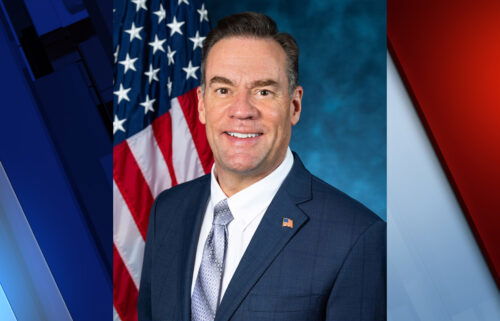Amateur Radio Enthusiasts prepare themselves for the event of a disaster
IDAHO FALLS, Idaho (KIFI) - A fun weekend for Amateur Radio enthusiasts started at noon Saturday and ended at noon Sunday.
The goal of the 24 hour period was to help prepare these radio operators to assist in the case of an emergency situation. The Eagle Rock Amateur Radio Club (ERARC) spent the 24 hours in Freeman Park simulating emergency situations making contact with as much people as possible around the United States.
"We'll be running off of silver generator batteries, emergency power to simulate loss of actual power, and then we try to make as many contacts as possible in that 24 hour period just to kind of test our skills and to test our equipment, make sure that, you know, we can get on the air, that we can make the contacts and, you know, pick out as many as you can," ERARC president Jeff Tomchak said.
He says the goal is to see how you can improve your skills with the radios and how you can maybe help people in the event of a disaster. But others find ways to have fun with it.
"It's just it's a measurement, more of skill than of actual points. There are people that take it as a very strict common test and do it for the points and for the the contests. And there's other groups that just do it to get out in the field and, you know, interact with other ham radio operators at a time where tons of operators are available on the air and easy to get in touch with."
The 24 hours was a very successful time for the ERARC and they were able to make contacts with a lot of people.
"We've been doing a lot over the last 24 hour period. We've got two stations running right now we were able to get all modes. We've talked out on CW, which is Morse Code. We've got digital modes that are ran through the computer we've made tons of contacts there, and we've also been doing voice contacts, usually using side band. We've got around 250 contacts in the last two hour periods. We're averaging about ten an hour."
He says the process of making that contact is a short one.
"So another station or yourself will call for CQ, which is seeking a contact, and then another station will either respond or you'll respond to that station and you'll exchange call. So you'll get that person's call sign you'll give yours, and then you'll exchange location information and what type of station that they're running it'll be something similar to our particular run."
Tomchak says this year their call sign KC7SIK helped them out.
"This year was KC 76 to Alpha, Idaho, which means we're a club station running on normal backup power and we're located in Idaho. Other club will then respond with their information, letting us know what type of section that they're in and what type of power they're running on and how many radios. That's that first part of the contact."
The second part to make a contact is "and then they'll let us know their location code and that establishes a contact. And then we know that and we'll get in our contact logs and that counts as points. If you're tracking points and if not, it just is good for the other clubs that are tracking points because you turn in your logs and they'll confirm that you had a contact with that other club."
The ERARC club president says they also had a great time and had many people come out too.
"We had about 25 people come in and out throughout the day, plus a bunch of people from the public that were passing through the park. We stopped and they were able to hear us get on the air. We had we were able to have unlicensed persons join in and get on the air with us as a first time contacts so they were able to jump on and make those contacts as well."
They say they did learn some things about how they can make it a better experience and quicker response in the event they actually need to step up and help out emergency responders in the event of disaster striking.





